Korek Telecom: Erbil-based Company Top Player in Iraqi Mobile Space
Korek is a big player in Iraq now, “we have nationwide coverage. We increased our market share by 4 percent in less than a year: we moved from 11 to 15.7 percent.”
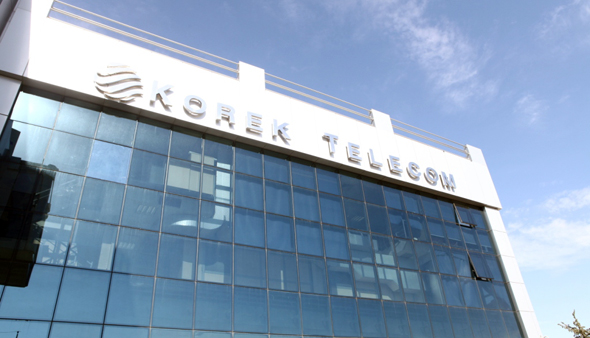
By TK Maloy
ERBIL: A key player in the mobile telecom space both in the Kurdistan region and south Iraq is Korek Telecom. Leveraging a first to market advantage it made quick early strides in the semi-autonomous region, and then made a bet on successfully enlarging its scope in Iraq proper.
Helping in the second phase of growth was a partnership with Orange (France Telecom) which gave Koreck a needed infusion of capital and technical knowledge for rapid growth.
Korek is a big player in Iraq now, “we have nationwide coverage. We increased our market share by 4 percent in less than a year: we moved from 11 to 15.7 percent.”
Korek CEO, Mrs Ghada Gebara noted: “The telecom environment in Iraq was developed by bits and pieces. During the American occupation licenses were distributed to three operators and they split the country in 3 regions: the north, the centre and the south. Korek came to be because we have been here for 12 years.”
She added that “A lot of people were afraid to go into the business because it’s a big investment. Korek did it, they put in personal investment and they succeeded. In 2007 the newly elected government of Iraq decided to launch new licensing that is nationwide and well regulated. At the time they had three operators covering the country: Asiacell, Orascom Iraquna and Zain.
Zain and Asiacell cut their licenses and we took the license of Orascom Iraquna. “
News reports were that Korek paid $1.25 billion for the Orascom license
Korek is a big player in Iraq now, “we have nationwide coverage. We increased our market share by 4 percent in less than a year: we moved from 11 to 15.7 percent.”
According to the CEO, Korek offers the best quality and price in the mobile space for Iraqi customers.
Recounting Koreks’s partnerships with Orange, Gebara said “We succeeded in another challenge which was to get an international operator to come on board with Korek. A year ago Orange and (Kuwait’s) Agility became Korek’s partners. They bring two important things to the table, of course financing, but also know-how.”
The partnership has had positive results.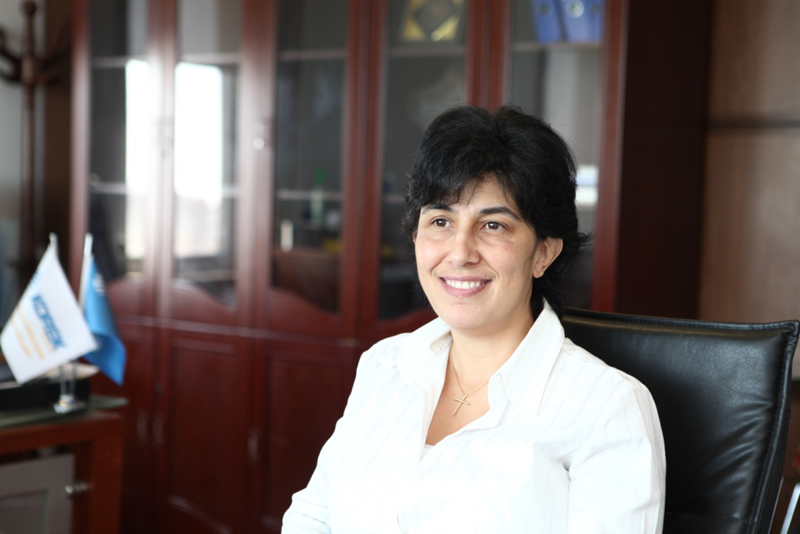
“Since we started a year ago, we have been increasing our market share drastically; we practically increased our customer base by more than 25 percent.”
According to Gebara the next step is to improve mobile-telecom technology sufficiently to bring “Iraq to 21st century. For her, telecom is not just a subsidiary industry, but is a key part of any economy’s infrastrure and economic growth potential.
“I always like to say that telecom is becoming an infrastructure. It’s not a leisure service like it used to be. In the past we talked about roads, water and electricity and telecom was an accessory. Now telecommunications is more important than roads, electricity and water,” Gebara eloquently noted “A company can buy a generator, can use a four wheel drive car, can use tanks of water, but they can’t replace telecom, be it the phones or the Internet because they need it to work. “
Based on this analysis, she added that it is key to accelerate the bandwidth offerings in Iraq.
“To be able to help the economy expand, be it in Kurdistan or the rest of the country, we need to offer those services. To be able to do that, a government decision is needed. Our licenses allow us to use any technology we need, but unfortunately we don’t have enough frequencies to offer good quality services,” the Korek CEO said. “The bandwidth we have now is not sufficient, we need new frequencies from the government and we need them fast. We also need to liberalise or reduce the cost of fiber optic and bandwidth rent which is huge in Iraq: 100 times more expensive than the surrounding countries. This of course will help accelerate the development that Iraq is experiencing at the moment.”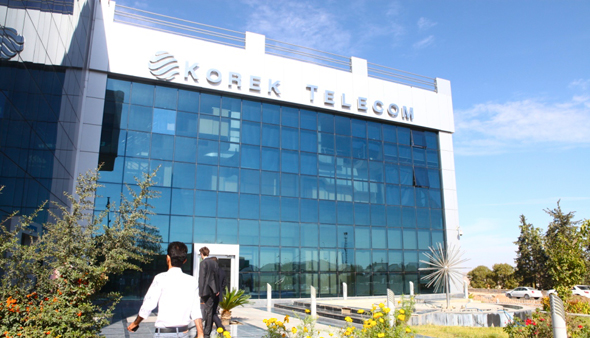
She believes that there is the political will to accomplish this but is would require someone in a leadership position, “who won’t play the political game and will make a firm decision.”
“Now we have the infrastructure, moving on to the next stage will be much faster. We can do in a year what took seven years to do in phones and voice. We currently have 5 percent Internet penetration in Iraq; this is not acceptable; I am sure we can make it 75 percent in less than a year.
Korek is not alone in the mobile space and has aggressive competition from Qatar Telecom, which has forged a popular brand with Wataniya, in addition to Zain, also a strong player.
“We respect our competition. This is the first rule, if you don’t respect them, you will fail. We don’t take anything for granted. I have said and I will repeat: we have the best quality network,” Gebara emphasized.
“Nowadays the client does not just need to talk, that is a given, it’s like if you go to buy a car and they tell you that the wheels are an accessory. The basic service is to have good quality when you are talking. Korek guarantees this everywhere all over the Iraqi territory, all our clients know this.”
She added that it is key for its business that Korek needs to continue being innovative.
“…We are doing that and we are credible, we never promise something we can’t deliver, we need to be honest with our client. We don’t just say beautiful things and when the client uses the service they realise it is not true,” the CEO said. “We don’t overpromise, we say and we deliver. Of course at the end of the day the client wants to pay the right price for the right service. Korek offers this package.”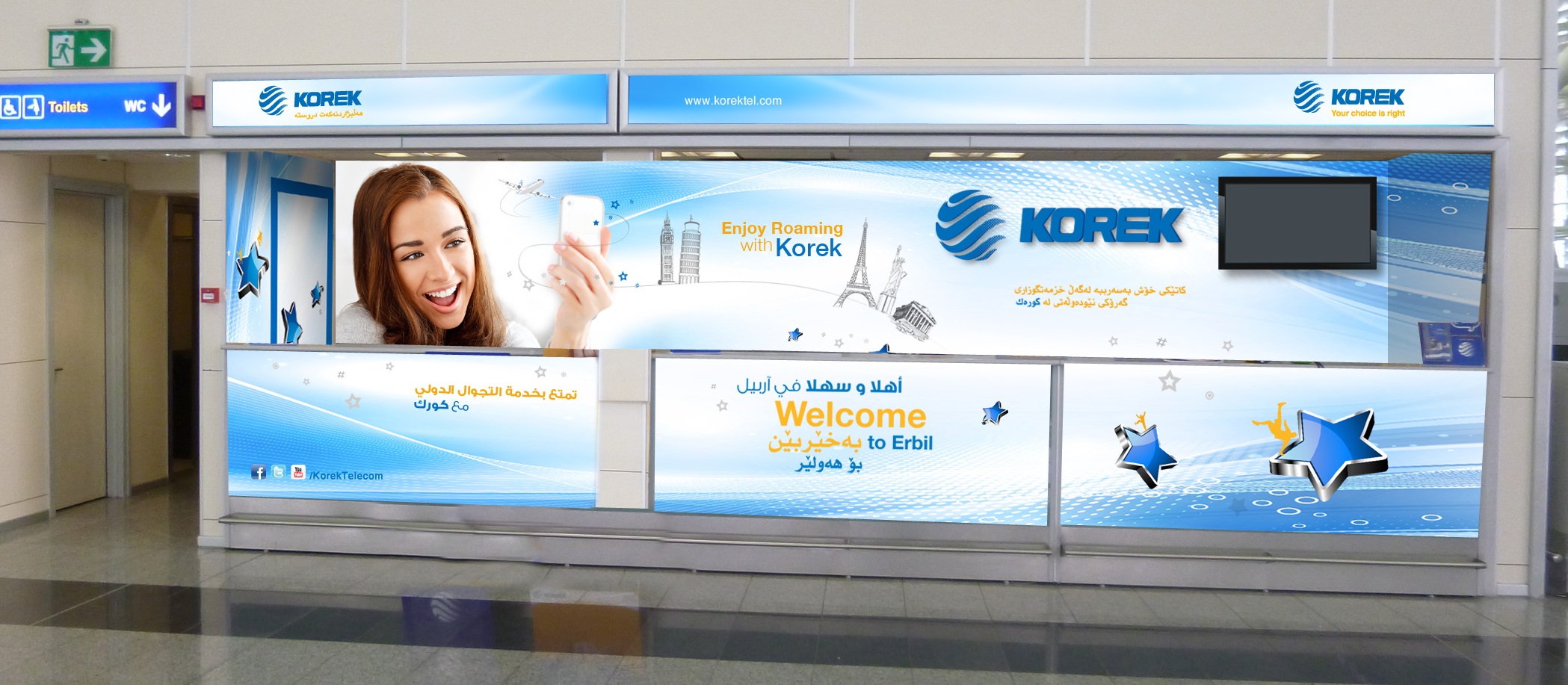
Korek’s CEO believes that the company also holds the brand advantage, being the home-team player.
“We are the only Iraqi company, Zain is Kuwaiti. We know that Iraqis are proud people and they have a very long history. They are proud of Korek, of a local company that became so big that it can challenge international companies and win,” Gebara said. “Whether in Kurdistan or the rest of Iraq, everyone is proud of Korek. We are a small Iraqi company and have made it internationally. We are playing in the major league.”
That said, asked about international expansion, Gebara noted that by virtue of Korek’s partnership with Orange it is defacto international, but added “we are still an Iraqi company with a majority of local shareholders.”
Under the terms of the deal with Orange, however, the French company could exercise options in the future to enlarge its percentage stake to own 51 percent of Korek.
“Anything is possible; I can’t know what the future will bring. At the moment we are concentrating on Iraq, to become number one,” the CEO said.
She added that Korek has the authorisation to go forward with 3G, “our license allows us to do it. The issue is that we need more bandwidth and to have that we need more frequencies. So we need the CMC, which is the regulatory authority in Iraq, to give us more frequencies.”
Gebara added that: “Unfortunately most of our 900 frequencies are polluted. If they can clean them for us, we can use them. If they can’t, they need to give us other frequencies to do it. So they need to make a decision.”
Regarding the high cost of operating licenses in Iraq the Korek CEO said that for the cost to go any higher “doesn’t make any economic sense” and that by selling for lower, federal Iraq will stimulate telecom infrastructural growth.
“…if the strategy is to develop the country, accelerate the development of the economy and have fast penetration of broadband, then the price should be low if not non-existent. “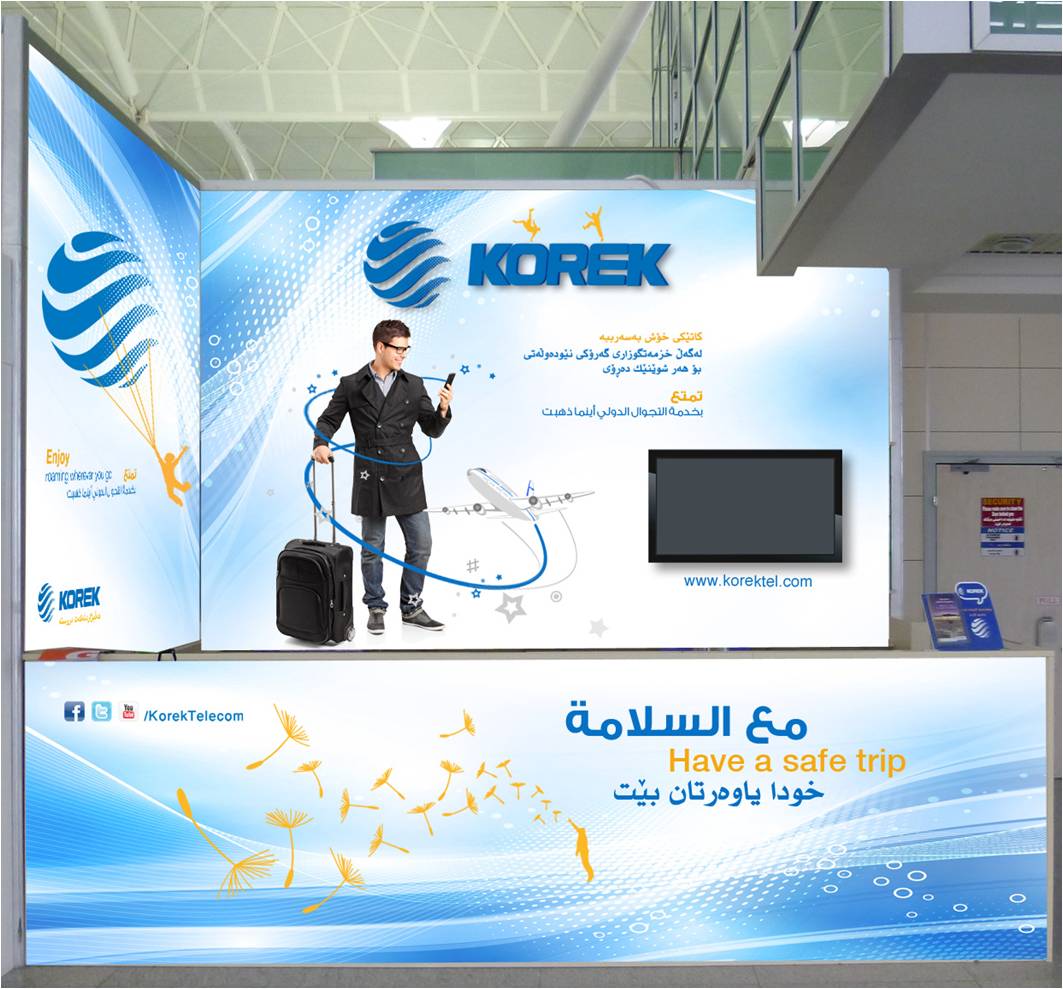
She said that a comparison of cost within the region shows that “it is at least 25 percent higher and sometimes 100 percent higher in Iraq. “
She said: “We need to acknowledge we paid US $1.25 billion and we share 18 percent of our revenue with the government. The government already owns 35 percent of the operator. The bottom line is we are partnered with the government.”
Gebara became CEO a year and a half ago, and hails from outside Kurdistan, but is bullish on her new position and region.
“It’s a beautiful country, we are an Iraqi company and we are proud of it. 99 pecent of the employees are Iraqi and they built this company and we continue to evolve together. Iraq and Kurdistan are booming, it is easy to invest here.”
Two top challenges the company faces, she said in a frank assessment are finding talented workers and retaining them
“We don’t have the know-how to keep up with the rate of business development. We have to remember Iraq has been in war for a while, the country has lost a lot of know-how,” Gebara said. “The new generation also lived in war so they lost a lot of know-how because they were practically in an embargo, cut off from the world. We find it difficult to find and keep (human) resources because of high demand.”
That said, she concluded on a positive note, saying “A lot of effort was made by the government to facilitate investment; we have one of the best investment laws in the Middle East. You don’t have to have a local partner, you don’t take a year to create a company, and you can do it in a week and start work. This is excellent.”
Gebara added “Iraq is open for business, Kurdistan especially. I encourage everybody to come and see. There is a place for everybody.”